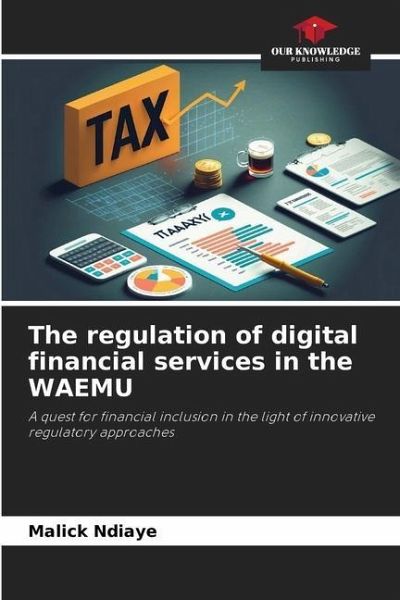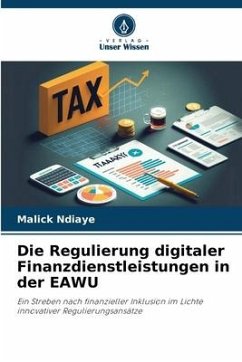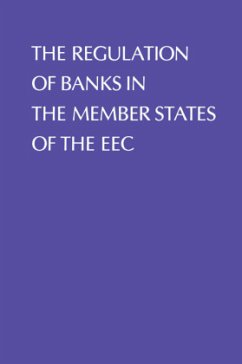
The regulation of digital financial services in the WAEMU
A quest for financial inclusion in the light of innovative regulatory approaches
Versandkostenfrei!
Versandfertig in 6-10 Tagen
27,99 €
inkl. MwSt.

PAYBACK Punkte
14 °P sammeln!
Financial inclusion has become a particularly important theme in the policies and programs of developing countries. In sub-Saharan Africa, it is mainly driven by the rise of mobile telephony. In this region, a forerunner in the impetus given to the development of digital financial services, the assessment of these services reveals shortcomings compared with the exceptional levels achieved in areas such as Southern Africa, where a country like Kenya is setting the standard both in terms of the richness of its digital financial services ecosystem and the services it offers. It's time to ask ques...
Financial inclusion has become a particularly important theme in the policies and programs of developing countries. In sub-Saharan Africa, it is mainly driven by the rise of mobile telephony. In this region, a forerunner in the impetus given to the development of digital financial services, the assessment of these services reveals shortcomings compared with the exceptional levels achieved in areas such as Southern Africa, where a country like Kenya is setting the standard both in terms of the richness of its digital financial services ecosystem and the services it offers. It's time to ask questions, and look for mechanisms that could have similar effects in the countries of the West African Economic and Monetary Union (UEMOA). Innovative regulatory approaches are needed to meet the new challenges: interoperability, equitable sharing of value, rebalancing between ex-ante and ex-post regulation. This calls for better coordination between regulatory authorities, as well as inclusiveconsultation with stakeholders.












